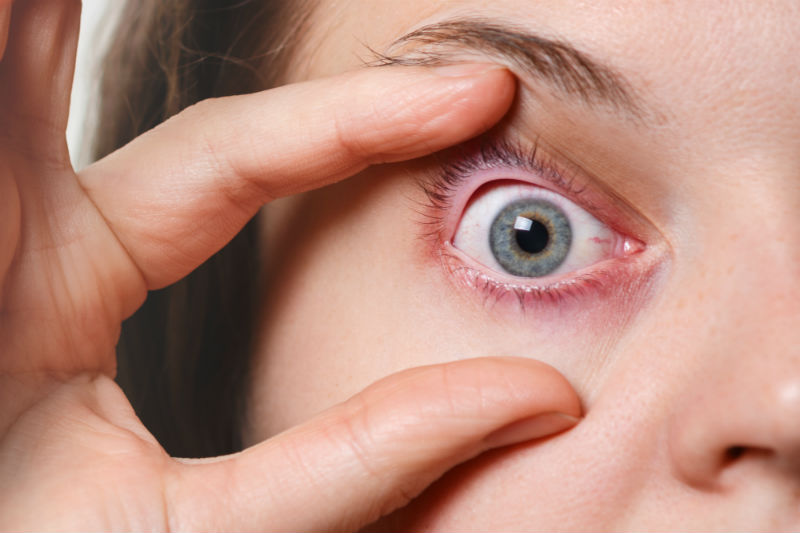The most common allergy to affect the eye is called an ocular allergy. Also called allergic conjunctivitis, it can lead to itching, burning, and redness of the eyes. If you think you may be suffering from an ocular allergy, it is recommended you make an appointment to see a specialist at an allergy clinic. Below you can find more information about the symptoms and treatments of the condition.
What is an ocular allergy?
The job of the immune system is to recognize foreign bodies and allergens and react by producing antibodies to fight them off. An ocular allergy occurs when the eyes come into contact with an allergen, which triggers the release of histamine. As a result, you may experience unpleasant symptoms such as redness, burning, and puffiness of the eyes. You may even sneeze or feel teary-eyed in the presence of a triggering allergen.

Seasonal allergens, such as pollen commonly cause an ocular allergy. Indoor allergens such as dust, pet fur, and certain fabrics may also trigger a reaction. Visiting an ocular allergy clinic will enable you to discuss your symptoms with a professional and decipher your allergen triggers.
If you think you may have an ocular allergy, consider when it is that your symptoms seem to be worst. If you find there is a pattern in the time of the day, month or year that your eyes are the itchiest, question why this may be. Are you reacting to a certain perfume you are spraying? Does the springtime pollen affect you? How do your eyes react when you are around animals?
How is an ocular allergy treated?
Most commonly, simply applying over-the-counter eye drops or anti-histamines should lessen your symptoms and enable you to ignore your ocular allergy for the most part. It may also help to avoid your trigger allergens, by, for example, trying not to go outside when pollen levels are high or keeping a wide berth from pets.

However, it is not always a realistic solution to simply avoid the issue, and for some people, popular medication does not successfully work in lowering their ocular allergy symptoms. If you are struggling to manage your allergy, a specialist at an allergy clinic can provide you with more advanced treatments such as prescription medications, steroids, and immunotherapy.
For the most effective treatment, ensure you visit an expert ocular allergy clinic you can trust. Do your research beforehand and be sure to read reviews. Left untreated, ocular allergies can negatively impact on your general well-being, so it is best to discuss your symptoms with a professional as soon as possible.






